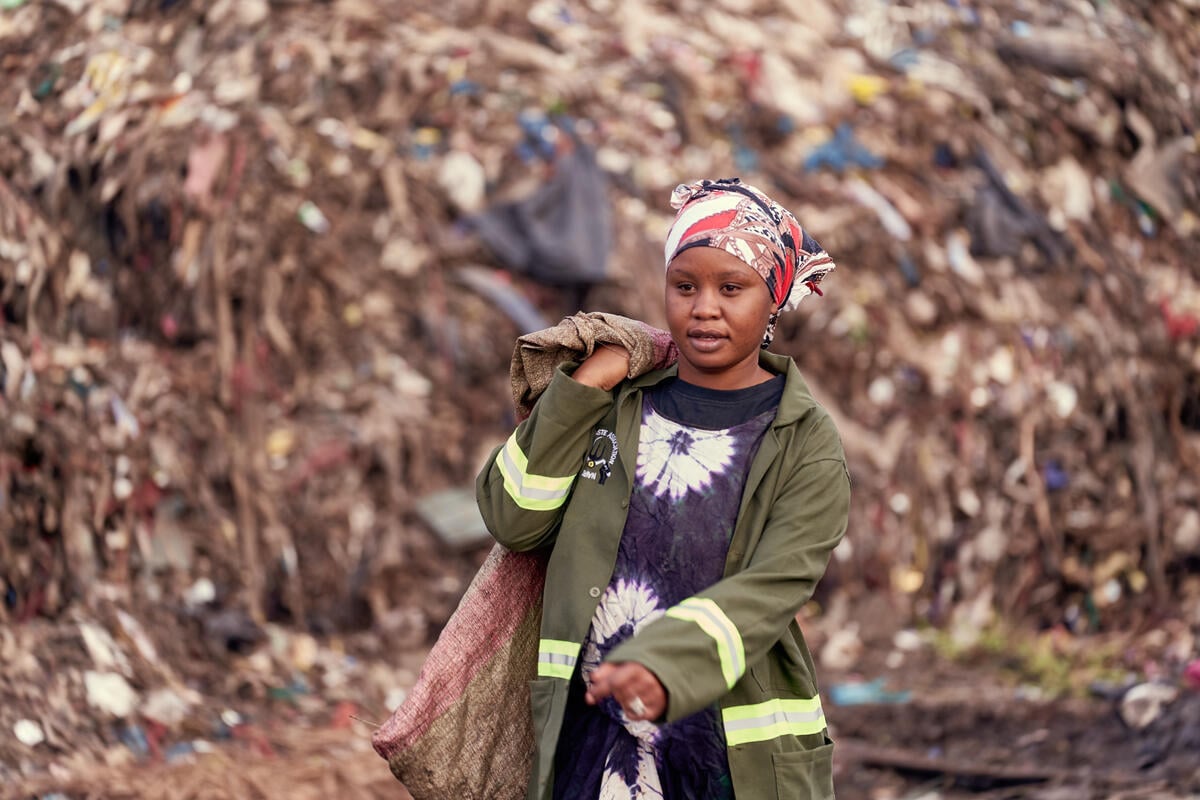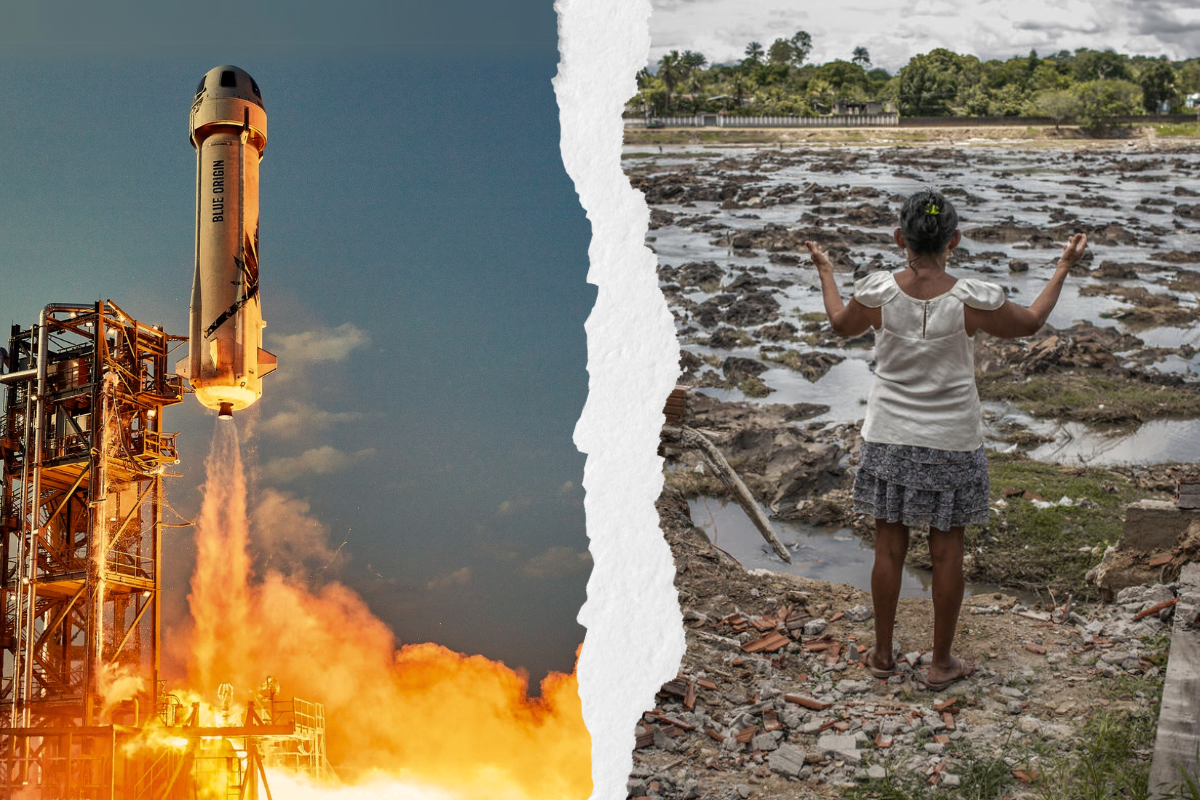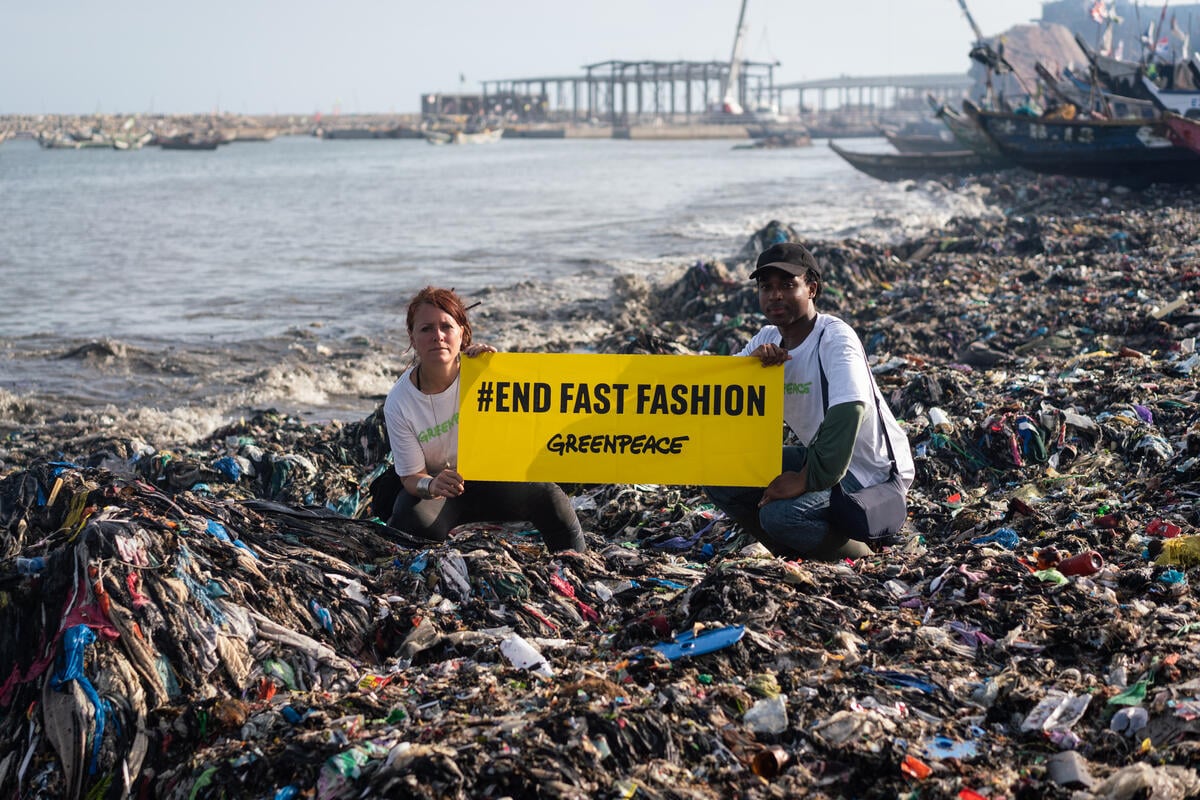This week between the 16th and the 21st of June we celebrate the 5th Global Sharing Week, the largest annual celebration of sharing in the world. This is not simply a celebration of the so-called “sharing economy” but another example of the growing movement to build a new system.
And boy do we need to try something new. As you might have seen, our current system isn’t working out too well. You know the one where we were told “if you just buy lots more stuff you will be happy!” or that we should enshrine endless economic growth as some sort of untouchable holy grail, ignoring the fact we live on a planet with finite resources. This system is fundamentally flawed and we can see the consequences: heatwaves, floods, extreme weather events and well… you know the rest. All of this is interlinked: 70% of global climate emissions originate in cities, and most of that comes from consumption of goods, food, travel or services.

Greenpeace held an exhibition in a Beijing shopping centre to show the public the value of e-waste with information panels, and an art installation made of over 500 old mobile phones was also exhibited.
Sharing helps protect the climate
On the bright side, this also means that there is a link between the alternatives to consumption and the solution to the climate crisis. As more people come together in their communities, neighbourhoods or at events like Sharing Week or MAKE SMTHNG to fix, make, mend, teach, learn, sew, repair, and share we start to build a different way of living: one that reduces our collective impact on the planet, makes the most of our precious resources and helps reduce emissions. It also celebrates innovation, creativity, collectivity and community. The movement is out there in your city, in your neighbourhood and it is growing: Sharing Week reaches over 100 million people each year and MAKE SMTHNG 2018 saw events in over 48 countries!

Greenpeace holds a MAKE SMTHNG Week event at the Millerntor Football Stadium showing there’s an alternative to endless consumerism of cheap electronics and fast fashion that truly harms our environment.
Now, just imagine the power of a movement that brought together the growing climate movement, from courageous school climate strikers to extinction rebels with makers, repairers, sharers, urban gardeners, sewers, food cooperatives and artists, all working together to build this new system? Yes, we need more people on the streets. Yes, we desperately need action from governments. Yes, we need to hold these huge polluters to account, but as the growing, bottom-up maker movement has shown we can also demonstrate the world we want to live in is possible. We need more people buying less and making more, more people sharing, more people coming together as a global community and changing the world from the bottom up!

Students in Prague, Czech Republic went on the street to strike on 15th March 2019, demonstrate and demand politicians to act urgently in order to prevent further global warming and climate change. It is a part of the School strike for climate movement, also known as Fridays for Future.
Join a sharing event near you – or register your own
So, this week check out what is happening near you, join a Sharing Week event, help host something at your kids’ school, see how you could connect with your local climate activist group. It’s time to connect the dots. This is the only way we are going to win.
Robin Perkins is the Project Leader of MAKE SMTHNG Week at Greenpeace East Asia



